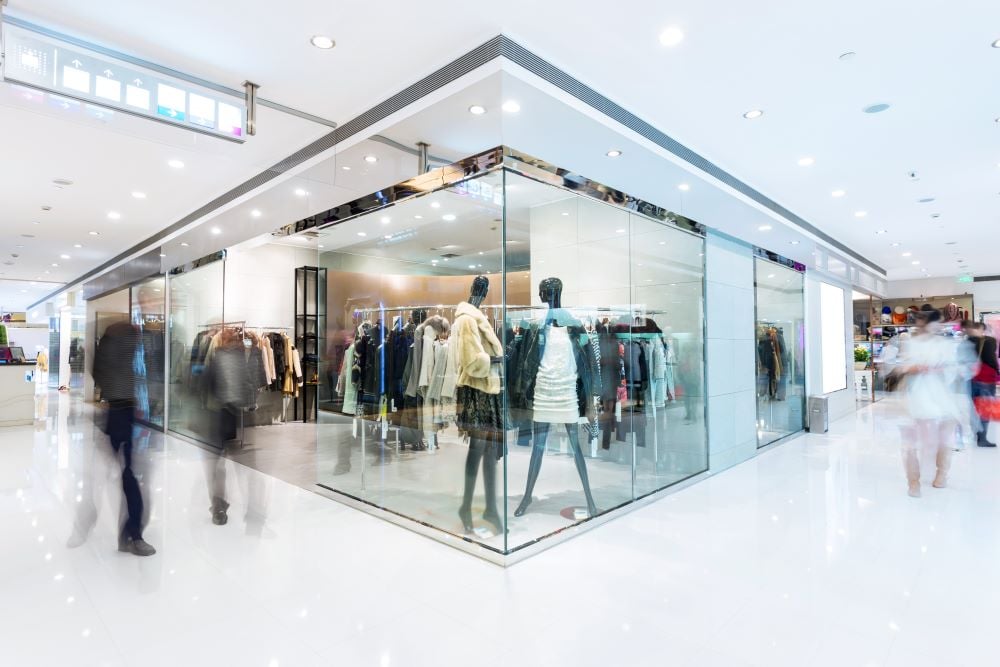
Retail M&A review: Spring 2025
Brands buy into their futures. Subscribe to receive the latest insights, events, and guidance
In Q1, the retail landscape was marked by strategic mergers and acquisitions. Nicola Sartori explains the trends across the sector.
By Nicola Sartori
The main takeaway from announced retail transactions in the last few months was businesses using acquisitions to future-proof their operations. The beauty sector’s resilience and large corporations’ divestment from non-core operations were key deal drivers.

Although there was a decline in deal volumes in the first quarter, part of this can be put down to the distortion in the market the Budget statement in October 2024 created. Sellers rushed to complete deals, which would otherwise have fallen into the first quarter of 2025, so care needs to be taken into reading too much into the drop in Q1. However, there’s still uncertainty and caution among investors and retailers, who continue to be influenced by the ongoing cost of living crisis. Ten deals were announced during Q1, a decrease from 14 in Q3 2024 and 16 in Q4 2024.
UK retail M&A Volume Quarterly

Source: Mergermarket; Orbis M&A and trade press
Strategic investments in the retail sector
Q1 saw several deals to expand companies’ brand portfolios and enhance geographic reach to enable future growth.
International licensing for Laura Ashley
In January 2025, Marquee Brands acquired the iconic British fashion label, Laura Ashley. This acquisition allows the company to leverage its well-established licensing model to extend Laura Ashley's global presence and target new product lines and collaborations to a diverse, multi-generational consumer base.
Blue Pool Capital invests in Golden Goose
In January 2025, Blue Pool Capital, a Hong Kong-based investment firm backed by Alibaba co-founder Joe Tsai, acquired a 12% stake in luxury sneaker brand Golden Goose. This strategic investment followed the postponement of Golden Goose's IPO in summer 2024 due to market volatility. The deal is designed to support the brand's expansion in the Asia-Pacific region, leveraging Blue Pool Capital’s market expertise, while majority shareholder, Permira, the British private equity firm, continues to oversee its global growth.
Steve Madden buys Kurt Geiger
In February Steve Madden agreed to acquire UK-headquartered footwear, handbag and accessories brand Kurt Geiger from international private equity firm Cinven. The acquisition significantly broadens Steve Madden's international presence adding premium brands, such as Kurt Geiger London, KG Kurt Geiger, and Carvela to its portfolio, strengthening the company’s position in the direct-to-consumer and high-end retail segments.
Brand streamlining and divestments
The challenging conditions and weaker consumer demand in key markets, particularly Europe and China, have caused an uptick in divestments across the luxury sector as brands focus on core operations to maintain efficiency and profitability.
Stella McCartney buys back equity
The designer repurchased a minority stake in her eponymous fashion label from LVMH in January, which originally acquired a 49% share in the brand five years ago. As part of this deal, McCartney gains more creative independence, though she will continue her role as LVMH's global ambassador for sustainability.
Belgian Cycling Factory invests in another bike brand
Other divestments include Frasers Group’s sale of Nukeproof, world-renowned mountain bike designer, to Belgian Cycling Factory (BCF). Frasers Group purchased the brand and intellectual property as part of its purchase of Wiggle and Chain Reaction Cycles out of administration in March 2024. BCF, which also owns Ridley and Eddy Merckx Bikes, aims to preserve Nukeproof’s expertise in design and manufacturing and continue its availability through BCF’s global dealer network. Frasers Group will still retain a strong foothold in the market through Evans Cycles, which remains a key part of their retail strategy.
WH Smith sells stores
The most high-profile announcement of the quarter was WH Smith’s divestment of its high-street business. The 230-year-old British retailer sold its high street stores to Modella Capital, the owner of Hobbycraft, to concentrate on its more profitable global travel retail division. This decision followed the ongoing decline in footfall and rising costs for its high-street shops. Under Modella's ownership, the WH Smith name will disappear from UK streets, but will continue operating in travel settings. As bricks-and-mortar retailers continue to navigate challenges, this deal highlights the adaptability and strategic evolution happening across the UK sector, with companies refocusing on more sustainable growth opportunities.
Beauty industry remains resilient
Consumers’ continued prioritisation of beauty spending, a notable exception to the general reduction in luxury purchases, is maintaining the sub-sector's high growth. Skky Partners, the private equity firm founded by Kim Kardashian, took a significant minority stake in UK-based luxury skincare brand 111Skin. Founded in 2012, 111Skin is positioned in the ultra-premium segment. Its flagship product, the Black Diamond 50ml Cream, retails at £600, underlining the brand’s appeal to affluent consumers.
The lending landscape
Inflation is currently under control and rates are forecast to come down more quickly through 2025. These factors have played into the ongoing resilience of the debt market and supported the availability of capital for strong businesses. In the retail sector, lender appetite remains selective to those businesses with differentiated products or services and robust financial performance. There’s still caution around consumers ability to spend and for businesses with high fixed costs.
With interest rates forecast to come down this should ease the burden on borrowers and make more funding available for transactions. However, it will depend in large part on the MPC base rate announcements, as well as the key macro-drivers on GDP and consumer spending.
Lender appetite has improved since last year and the competitiveness between them has been shown in decreasing margins, particularly from debt funds who are selectively competing with each other.
There are some headwinds to be aware of. Banks’ assessment of the potential impacts of tariffs continues to evolve and will vary by business. Lenders are still wary of inflation and other macro-issues and require more data and borrower forecast validations, maintaining a high burden of proof despite the level of increased competition.
Overall, we’re cautiously optimistic about the availability of debt into retail.
What could happen next?
The uncertainty created by the US Government’s tariff policy and supply-chain disruption may dampen appetite, complicate deal pricing, diligence, and long-term planning in the near future. This is particularly relevant for retail businesses with cross-border operations or heavy reliance on imported goods. While tariffs may not directly halt transactions, they can lead to more cautious investor behaviour, extended deal timelines, and greater scrutiny during due diligence as parties assess margin impacts and potential future-cost volatility. Although there was a reduction in volume, strategic M&A decisions and sustained investor interest in sectors such as beauty indicate that businesses are adapting to fluctuating market conditions to position themselves for future growth.